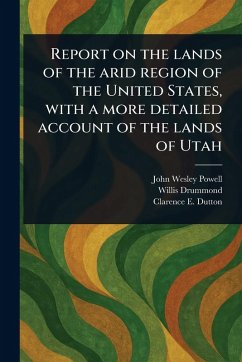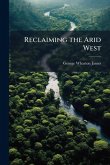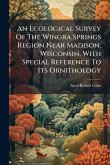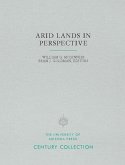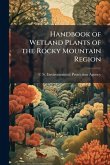John Wesley Powell's "Report on the Lands of the Arid Region of the United States, with a more detailed account of the lands of Utah" offers a foundational exploration of land use and conservation in the American West. This seminal work, focusing on the arid regions and specifically Utah, delves into the challenges and possibilities presented by the unique environment. Powell's detailed account examines the relationship between rainfall and the land, providing crucial insights into the natural resources of the region. A vital historical document for anyone interested in the environmental history of the United States, this report remains relevant to contemporary discussions about land management and sustainability. Discover the pioneering observations and recommendations that shaped our understanding of the West. This meticulously prepared print republication allows readers to engage with Powell's original text and appreciate the enduring importance of his work. A must-read for those fascinated by the landscapes and natural resources of the American West. This work has been selected by scholars as being culturally important, and is part of the knowledge base of civilization as we know it. This work is in the public domain in the United States of America, and possibly other nations. Within the United States, you may freely copy and distribute this work, as no entity (individual or corporate) has a copyright on the body of the work. Scholars believe, and we concur, that this work is important enough to be preserved, reproduced, and made generally available to the public. We appreciate your support of the preservation process, and thank you for being an important part of keeping this knowledge alive and relevant.
Bitte wählen Sie Ihr Anliegen aus.
Rechnungen
Retourenschein anfordern
Bestellstatus
Storno

